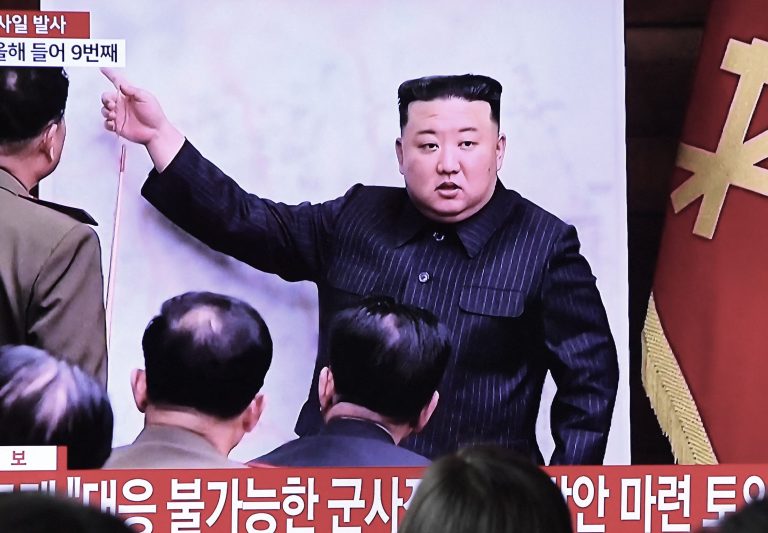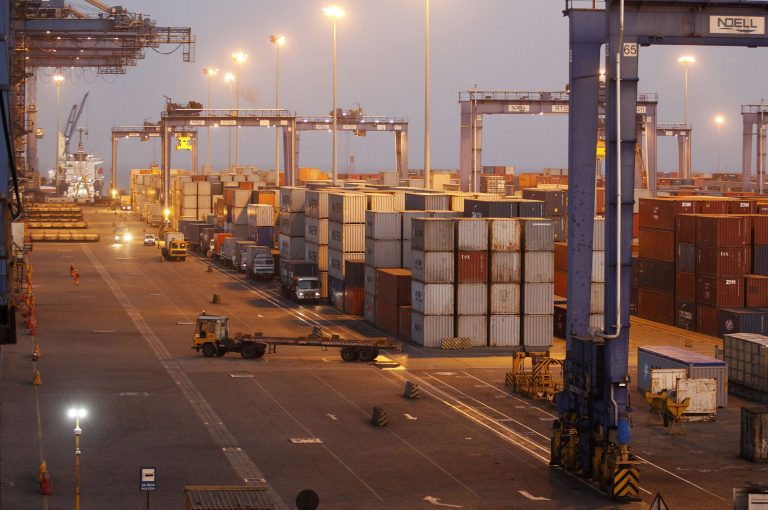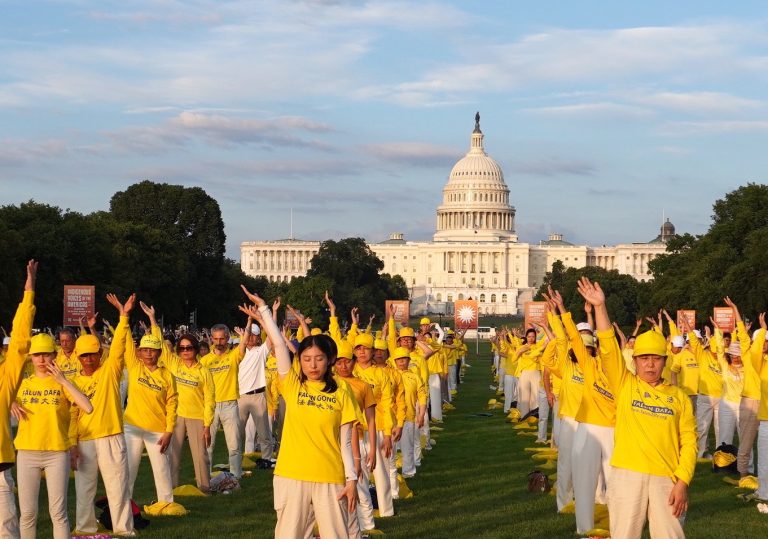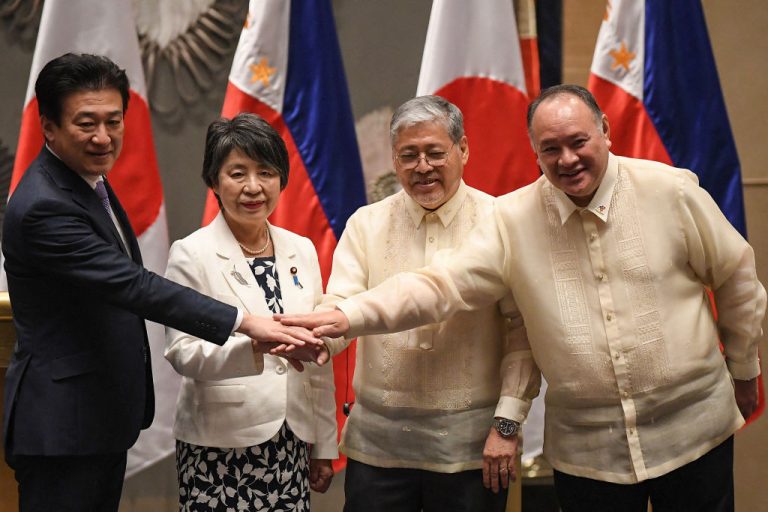By Wang Jun, Vision Times Staff
Recent reports from South Korean media suggest that North Korean leader Kim Jong Un has personally acknowledged the failures of the communist country’s rationing system. Notably, it is the first time Kim has made such a statement outside of Pyongyang, the capital, and not during a meeting of the Politburo in the main Korean Workers Party (KWP) headquarters building, indicating the seriousness of the situation.
Kim, the hereditary dictator of North Korea since 2011, even indicated that corruption in the ranks of the totalitarian regime was exacerbating the problems facing local communities and residents.
According to a Jan. 28 report by South Korea’s Chosun Ilbo newspaper, from Jan. 23 to Jan. 24, Kim Jong-un held an expanded meeting of the KWP Politburo at Myohyangsan, in the northern part of the country. Kim stated, “We cannot guarantee the smooth supply of basic food and essential daily necessities to the people in their localities. This is a serious political issue that the Party and the government cannot avoid.”
- North Korea Spy Satellite Launch Raises Tensions in East Asia
- (2021) People Starving in North Korea, Economy Shrinks 4.5% as Country Faces Food and Essentials Shortages
- China and Russia Bolster Ties on the Korean Peninsula Amid Heightened Geopolitical Tensions
Myohyangsan (妙香山), or Mt. Myohyang, sits at the confluence of three North Korean provinces and has cultural significance as the legendary birthplace of the ancient Korean King Tangun.
Success
You are now signed up for our newsletter
Success
Check your email to complete sign up
Kim Jong-un mentioned that local economies in North Korea are in a “terrible situation” and highlighted the “serious imbalance and enormous gap” between different parts of the country. He called for a swift change and the narrowing of the gap in living standards between urban and rural areas.
According to North Koreans who spoke with the Chosun Ilbo, the Jan. 25 issue of North Korea’s state-run Rodong Sinmun paper dedicated five pages, including the front page, to Kim’s speech at the “Myohyangsan Expanded Meeting of the Workers Party Politburo.”
From rationing to black markets
In his speech, Kim criticized Party officials for shirking their responsibilities, saying that some policy guidance departments and economic agencies had falsely claimed that they were “unable to find practical, revolutionary possibilities.” He also mentioned the uneven pace of industrial development among North Korea’s counties and cities, citing a “passive” attitude towards implementation of a recent policy directive.
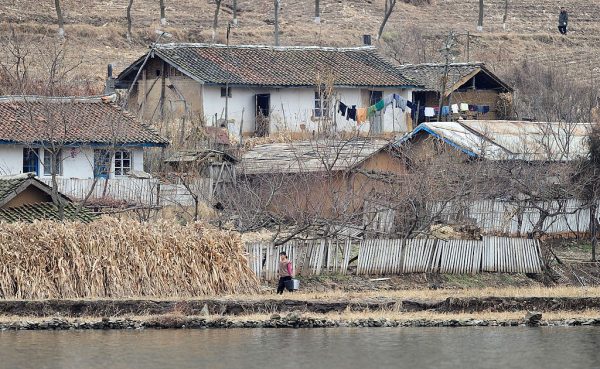
According to North Korea’s state-run Korean Central News Agency (KCNA), “Supreme Leader Kim Jung Un” proposed a “Local Development 20×10 Policy” at the 10th meeting of the 14th Supreme People’s Assembly held on Jan. 15.
The “20×10 Policy” is touted as a plan to construct modernized industrial facilities in 20 counties on an annual basis. Kim also signed an additional order for local industrial development, and a plan was formulated to mobilize the Korean People’s Army (KPA) to aid in the work.
KPA personnel are routinely deployed to perform hard labor, despite often not being afforded the resources or supplies to do so effectively.
- North Korea Is Trying to Build a Border Wall With China, But Can’t Get It Finished
- (2022) North Korea Begins Jabbing Soldiers With ‘Immortal Potions of Love’ After Admitting 1st COVID-19 Case
- Insubordination Trend Rising in North Korean Military
In North Korea, the vast majority of modern infrastructure, including roads, housing, and electrification, is concentrated in Pyongyang, where the privileged class resides. The developmental gap between the capital and the rest of the country is so extreme that many North Koreans call their country “the Republic of Pyongyang,” as reported by the Chosun Ilbo.
Tellingly, Kim Jong Un’s speech reveals the longstanding deficiency of North Korea’s national rationing system.
Founded in 1945, North Korea has operated on a communist planned economy, where the state controls all legal business. The rationing system used to distribute food and other essentials functionally collapsed in the 1990s, when hundreds of thousands of people died in a severe famine. The KWP euphemistically refers to the disaster as the “Arduous March.”
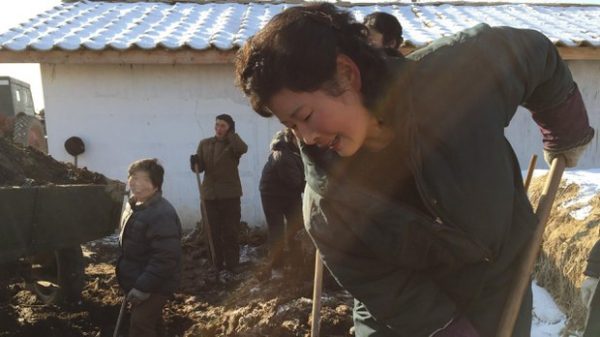
Today, instead of official rations, most North Koreans frequent black markets to obtain their food and other daily products. Meanwhile, the government has taken an increasingly lax attitude to cracking down on such private commerce.
In October 2005, North Korea announced the normalization of the food rationing system, but in practice, normal distribution was only restored in certain areas like Pyongyang. After the currency reform in November 2009, the North Korean authorities attempted to rebuild the national distribution network to restart the planned economy, but only distributed food, primarily to urban workers and Party members.
Growing corruption as supplies run low
Various media outside North Korea have spoken with sources inside the isolated country regarding the hardship in their daily lives. According to residents of South Pyong’an Province cited in an article published by South Korea-based DailyNK last March, some local officials received only 60 percent of the rations their communities had been promised at the beginning of 2023.
Currently, only certain residents of Pyongyang, KWP officials, and military personnel can reliably expect their ration of food and supplies from the state. Lately, however, supply difficulties have meant that even these privileged households have had to make do with less. For instance, corn has replaced rice, and reductions in military officers’ rations has caused their families to go hungry.
Military officers’ families typically rely on rationing for their livelihoods. When they are in urgent need of cash, they could sell some of the food to meet their needs. However, recent economic downturns for the North Korean regime has led to an increase in military officers and their relatives borrowing money from neighbors, or turning to other means of securing income.
In many cases, this has led to military officials failing to carry out their actual duties, the residents said.
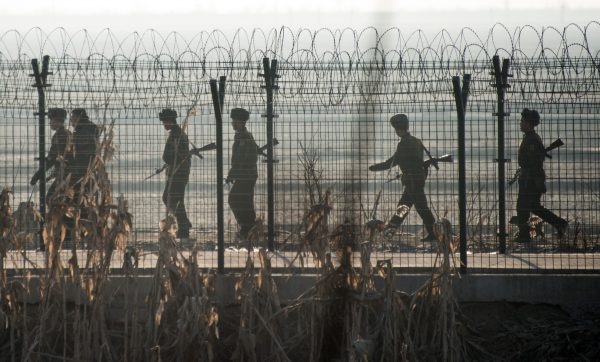
One resident told DailyNK of an anecdote involving an officer from the artillery brigade of the Pyongyang Defense Command in South Pyongan. His wife had contracted tuberculosis, but he couldn’t afford the treatment due to a lack of income. Desperate, he had to tap various unofficial channels to borrow money and rice. His situation was reported to higher authorities and became an incident.
Such pressures have led to increased corruption among once well-off military officers. Some have demanded bribes from lower-ranking personnel to approve leave and other benefits, spreading the hardships down the ranks.
Growing resentment among hungry citizens over Kim’s missile program
Under Kim Jong Un, the North Korean regime has portrayed itself as placing greater emphasis on meeting the people’s dietary needs, while strengthening its nuclear weapons program.
But while Kim has on occasions been shown announcing that ordinary citizens would enjoy champagne and dog meat (considered a delicacy in Korean cuisine), the facts on the ground have directed anger towards the government’s extravagant efforts to build and maintain its stockpile of ballistic missiles.
- South Korea Forges Tougher Approach to Handle Nuclear-armed North
- North Korean Women ‘Rented’ to China for Work Disappear From Shanghai Dorm, Presumed Defected: Report
- In North Korea, Desperate and Hungry Citizens Kidnap Two Children of Well-off Families, Demand Ransom
According to an April 19, 2023 piece by DailyNK, sources from North Hamgyong Province described heavy propaganda in the port city of Chongjin lauding the successful test launch of the Hwasong-18 ballistic missile “under the guidance of Chairman Kim Jong Un,” showcasing the ability of the North Korean regime to deliver nuclear strikes on targets thousands of miles away.
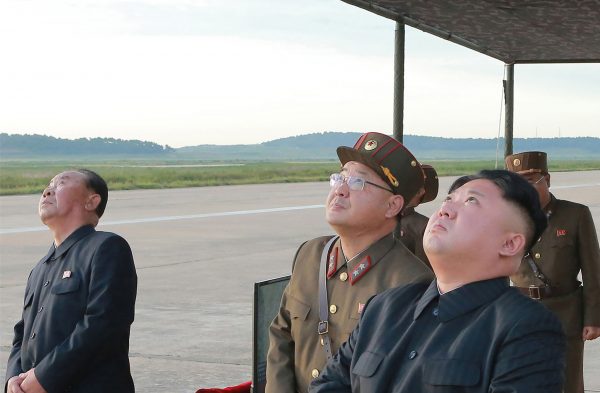
But instead of cheering the government, many residents responded to the propaganda with sarcasm and ridicule, noting that as Kim broadcasts successful rocket launches, ordinary North Koreans collapse from hunger in the streets, while others lack basic supplies of water or electricity.
In Chongjin, a middle-aged man was reported to have passed out from starvation on his way to work last April, according to the sources. His case was not an isolated incident, with even soldiers tasked with defending North Korea becoming visibly emaciated due to a lack of food.
“At the very least, the government should hold off on building missiles while the people are starving,” the sources said, describing public sentiments.
Some rejected the regime’s calls for “belt-tightening” secure North Korea’s defense, with one individual reckoning that if even 10 percent of the funding for military rockets were allocated to the public, all cases of severe hunger could be avoided.



